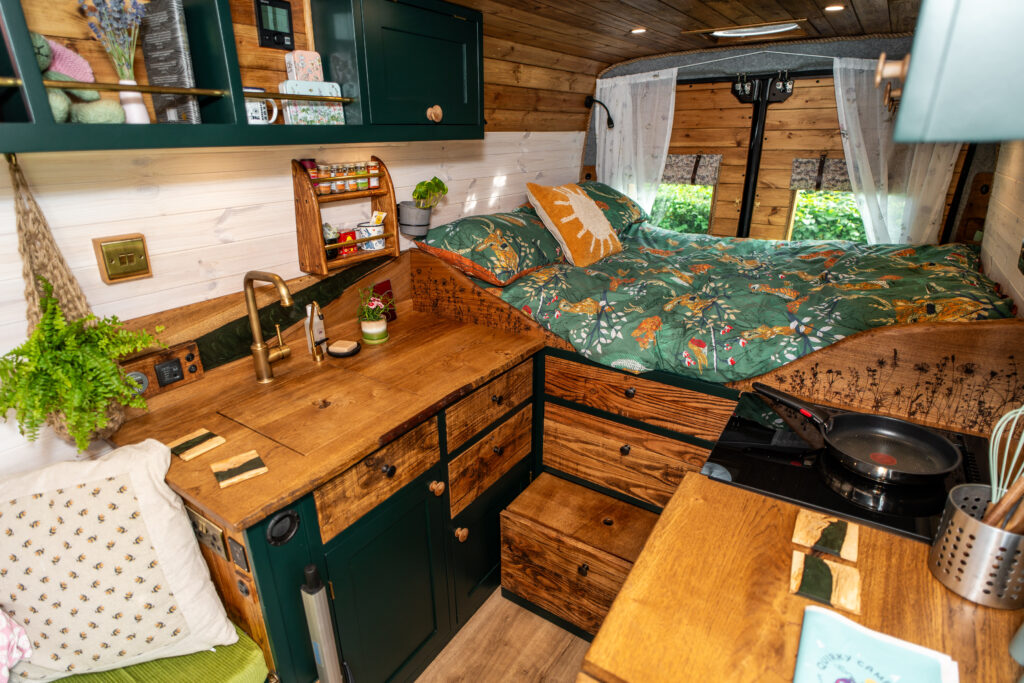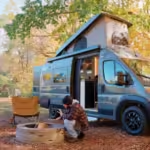Owning a camper is an exciting journey that can lead to many adventures and a place to stay when you’re away from home. Whether you’ve traveled before or it’s your first time, making the right choice is crucial to a comfortable and enjoyable trip. This complete guide will help you buy a camper.
Figure out what you need
Before you buy a camper, it’s important to know what you want and need. Think about what kind of trips you want to make and how often you’ll be using the van. Are you looking for a vehicle that’s perfect for long road trips, weekend getaways, or full-time living? The size, features, and type of camper you choose will depend on your answers. Trust yourself and the people you’re traveling with. Ask yourself if you need extra amenities, such as showers, toilets, or a large kitchen.
Research different types of campers
There are many types of campers, each suited to different needs and budgets. There are Class A campers, which are the largest and best types of campers. They have lots of space and nice features. Class B motorhomes, also called campervans, are smaller and more maneuverable, making them ideal for city trips with small groups. Class C motorhomes sit in the middle. They have more space than a Class B motorhome but are easier to drive than a Class A motorhome. Read more about each type to see which one best suits your travel style and budget.
How to Budget
When buying a motorhome, it’s important to have a budget that you can stick to. Your budget should include not only the price of the van itself, but also costs like insurance, registration, repairs, and possible upgrades. New motorhomes can be expensive, so if you’re on a budget, you may want to look at a used one. You can save a lot of money by buying a used motorhome, but they may require more repairs or upgrades.
Inspection and Testing
Once you’ve found a motorhome that meets your needs and fits your budget, it’s time to test drive and inspect it. Whether the item is new or used, it should be thoroughly inspected. Look for signs of water damage and normal wear and tear, and make sure all systems (heating, plumbing, and electrical) are working properly. It’s best to have your used RV professionally inspected to uncover any hidden issues. Test drive the van to make sure it drives well and meets your comfort standards.
Check out specs and features
RVs come in many different types of features and specifications. Think about what’s important to you when you’re traveling. Some common things to consider are where you’ll sleep, what’s in the kitchen and bathroom, how much storage space there is, and how you’ll be able to have fun. Make sure the layout works for you and that all your items fit smoothly. Look for things like air conditioning, solar panels, and good insulation to make life easier and more comfortable.
Understand support and warranty
It’s important to consider the warranty, especially with a brand new RV. It gives you peace of mind that any major issues will be taken care of. For used RVs, check to see if the warranty is transferable. Also consider how easy it is to get help and service for the brand of RV you choose. If something goes wrong, knowing you can get help from a trusted source can save you time and stress.
Consider Future Costs
After you first buy an RV, there are ongoing costs. Some of these include gas, maintenance, insurance, and camping fees. Make sure these costs are within your budget and be prepared to perform regular maintenance on your van to keep it in good condition. To keep your RV safe, it will need regular maintenance, such as oil changes, tire inspections, and cleaning.
How to Find the Best Dealer
Choosing a reputable dealer can make a big difference in how you buy. Read dealer reviews to find a dealer with a good service history. They should have straightforward pricing, a reliable warranty, and helpful customer service. Don’t be afraid to ask for references or ask for advice from other RV owners.
Financing Options
If you can’t afford to buy an RV outright, consider financing options. Many dealerships offer financing plans, but you can also check with a bank or credit union to see if they have better rates. Understand the terms of any loan you apply for, such as interest rates and repayment terms. Make sure you can afford your monthly payments and handle them.
Ready to Own After you own your RV ones. Getting ready ahead of time will help you avoid problems and enjoy your trip more.
Looking into Insurance Choices
Having insurance is an important part of owning a camper van. Look for insurance policies that cover a lot of different things about owning a camper van, like liability, collision, and full coverage. Some policies cover personal items and offer roadside assistance as well. Look around to find the best deals on rates and coverage for your needs.
Signing up for a Group Finally, think about joining a community or club for camper vans. These groups can help you by giving you advice, support, and friendship. They often talk about maintenance, places to visit, and useful tips for living in a van. Being a part of a community can make your experience better and give you a way to connect with other fans.
Conclusion
Buying a camper van requires careful thought about your needs, research, budget, and inspection. You can be sure you made the right choice and start your camper from adventures with confidence if you follow this guide. Have a great trip!



